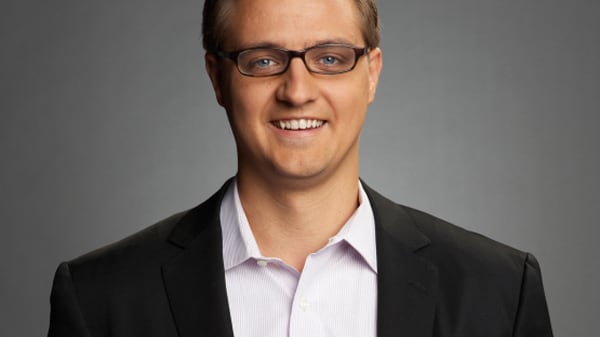Poor Chris Hayes, he forgot the script. The script says that if you’re hosting a television show on Memorial Day, you talk about whatever you’d normally talk about and then tack on a photo montage at the end, accompanied by somber music. You honor the dead by not talking about the reasons they died.
Evidently, no one told MSNBC’s Chris Hayes. First, he used Memorial Day to talk about all the war dead, theirs and ours. In his opening monologue, he discussed Master Sgt. Evander Andrews, the first American casualty of the Afghan War. And then he mentioned an 8-month-old Afghan girl who was killed by American bombs 11 days later.
If that wasn’t subversive enough, he went on to describe the social distance between military families and other Americans 10 years into a “war on terror” that America’s politicians have largely subcontracted to other people’s husbands, wives, daughters, and sons. “It can seem at times,” said Hayes, “as if we barely inhabit the same union as our own soldiers,” which is true, although few other talk-show hosts would be so honest about the gulf that separates them from the families of the dead.
And then Hayes went completely over the edge, declaring that “I feel uncomfortable about [using] the word ‘hero’ [to describe America’s war dead] because it seems to me that it is so rhetorically proximate to justifications for more war ... it seems to me that we marshal this word in a way that is problematic.”
The right-wing jingosphere responded with the kind of analysis you’d expect to read on a bathroom wall. At Breitbart, Kurt Schlichter called Hayes “a parasite.” At Newsbusters, Mark Finkelstein dubbed him “effete.” The always-edifying Ann Coulter tweeted that Marines were “protecting his right to menstruate.” Hayes quickly apologized.
But for what, exactly? I don’t share Hayes’s queasiness about the using the word “hero” to describe those Americans who died in Afghanistan and Iraq. In America today, where self-gratification is practically a national religion, there is something heroic about voluntarily placing your fate at your country’s service. But Hayes’s larger point—that in honoring the dead we should not surrender our critical faculties about war—is not only correct, it’s crucial. For more than 10 years now, the Coulters and Dick Cheneys of American politics have used the pain and pride of a nation at war to cow those who might have questioned our post-9/11 wars. In 2002 many congressional Democrats were too afraid of Karl Rove to vote against authorizing the invasion of Iraq. In 2009 Barack Obama acquiesced to an escalation in Afghanistan about which he had grave doubts, in part because of the political pressure he felt from the military brass and their allies in the congressional GOP. And even now, with most Americans convinced that the Afghan War is a waste of money and blood, it remains perilous for a television host to use Memorial Day to ask why our troops are still dying there.
The insistence that public figures honor the people who fight America’s wars regardless of how they feel about the wars themselves began as a useful reaction to the excesses of the anti-Vietnam left. But 10 years after the 9/11 attacks, all the pious, saccharine talk about “heroes” and “greatest generations” feels like a way for politicians and pundits to salve their guilty consciences. What good does it do a family that recently lost their son in Afghanistan to be told that he was a hero by a politician who can’t justify why he was there? It is telling that the presidential candidate who spoke about America’s wars in the least reverential terms—Ron Paul—received the most campaign donations from America’s war fighters.

My sister-in-law, an Army doctor, just returned from Afghanistan. When she shipped out, the Army gave her 3-year-old daughter a doll with a photograph of her mother’s face pasted on the front. What do we owe my sister-in-law—and her husband and two small girls—for having made a sacrifice that most Americans of my demographic can’t even contemplate? We owe them our reverence, absolutely. But more that, we owe them our citizenship. Our deepest duty is to ask ourselves, relentlessly, whether the cause for which my sister-in-law sacrificed justifies the pain it has caused her family and the many American and Afghan families that have suffered far more. And if the answer is no, we owe them more than our sympathy and admiration. We owe them our rage.






